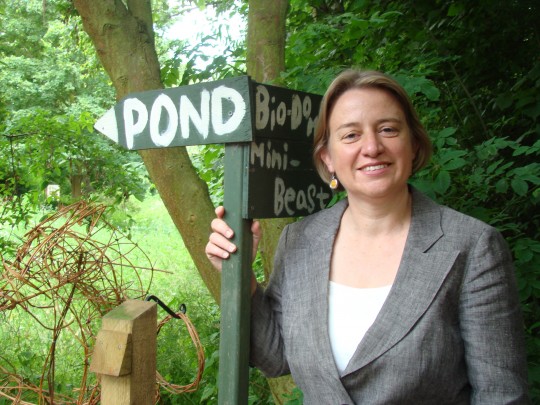
Tab meets: Natalie Bennett
NATALIE BENNETT, the current political leader of the Green Party, talks about the upcoming European Parliament elections and why she thinks that the Green Party is the only viable alternative to the main political parties on the UK’s political landscape.

You began your career as a journalist and editor. What was it that prompted you to move into politics?
As a journalist you are often reporting very sad news, like African famines and natural disasters. But it does get to the stage when you just don’t feel like you can write another one of those and I got to that point when what I wanted to do was really to try and change the world rather than just report on it.
Following your election as party leader you stated that the policies of the Green Party were ‘the only viable way forward for British people’. Can you expand a little on this?
Basically what we are aiming to do is to enable a situation where everyone in Britain has sufficient resources for a decent life and we have developed our set of policies to achieve. If we think about the state of Britain now, we are sixth richest economy in the world and yet we have 1 in 5 workers earning less than living wage. 1 in 10 workers in working fewer hours than they would like to. The present economic and social system is clearly going to change because it is not sustainable as it currently is. And then of course as we are being reminded, sadly by these terrible floods, that we are in a situation when we have already started to change the world’s climate and we have done massive damage to our natural systems. We have to stop doing that as fast as possible.
How do you intend to reach out to students, many of whom might be under the misconception that the Green Party is unique only for its environmental policies, and appeal to them directly?
Well one of our policies that I often talk about is making the minimum wage a living wage, and of course a very high percentage of the people who are earning less than a living wage are actually young people: 1 in 3 people on zero-hour contracts are under 25, and we want to ban these altogether. We also believe in supporting zero tuition fees because we think that education is a public good and should be paid for from our joint resources. And if you then go and use you education to make a very high income you should pay back a decent proportion of that income, whereas if you go and do something that is maybe a public service job that pays much less, you won’t have the weight of that debt sitting on your shoulders for 30 years.
When you were elected as leader of the Party you also said that you wanted to secure ‘many, many more MPs’ in Parliament – how do you intend to do this?
The next step for us is the European elections in May – we only need a swing of 1.6% across the country which would treble our number of MEPs. This would help to give people the sense that Green is an option that is very much on the political agenda. I think there is now a general recognition that our political system simply isn’t working. One of the answers to this problem is the Russell Brand ‘Don’t Vote’ response, but I think that is both dangerous and damaging. What I’m suggesting is that people instead vote for what they believe in. Rather than believing that this is simply a ‘two-horse race’, I am suggesting that people just vote for the party’s personal policies that you most like. And if everyone does that we will have a peaceful revolution in British politics.
Not a fan of Russell’s call to inaction
You recently stated on your leader’s blog that, while there is real cause to be optimistic, 2013 was arguably not the year that we got serious about climate change. Do you hope or expect that things will look any different at the end of 2014?
I think that things are already different now from how they were say a month or two ago when I wrote that. All of us in Britain are seeing climate change right here. It’s not something that is having an impact in some distant place, it is happening to our friends and neighbours and family. So we’ve got a very clear message from the weather, showing us that we need to change our ways and get serious about acting on climate change. And it’s interesting actually, I’ve noticed, in the interviews that I’ve been doing recently, that there is a lot less over-scepticism being expressed in the public than there would have been even a week or two back.
People have been forced to get creative on their commutes to work









































